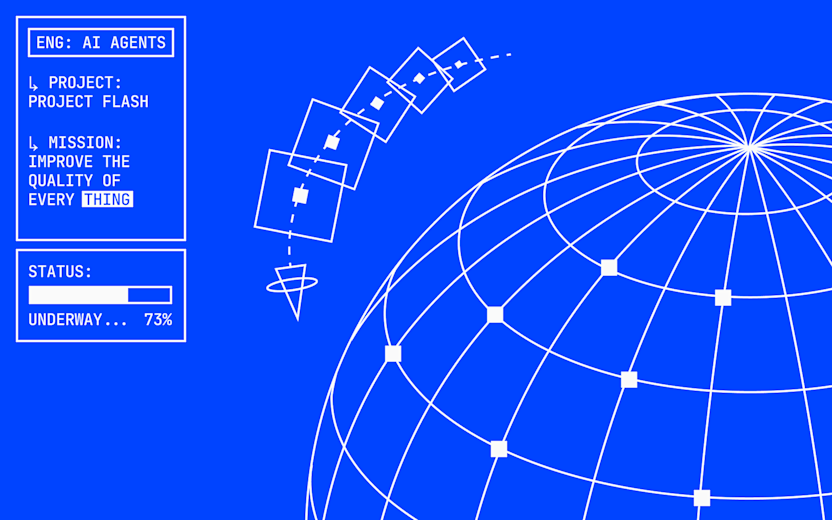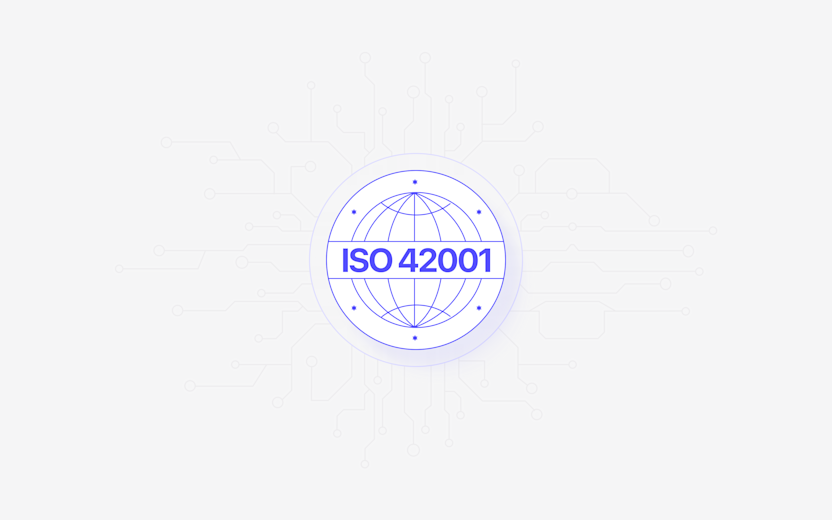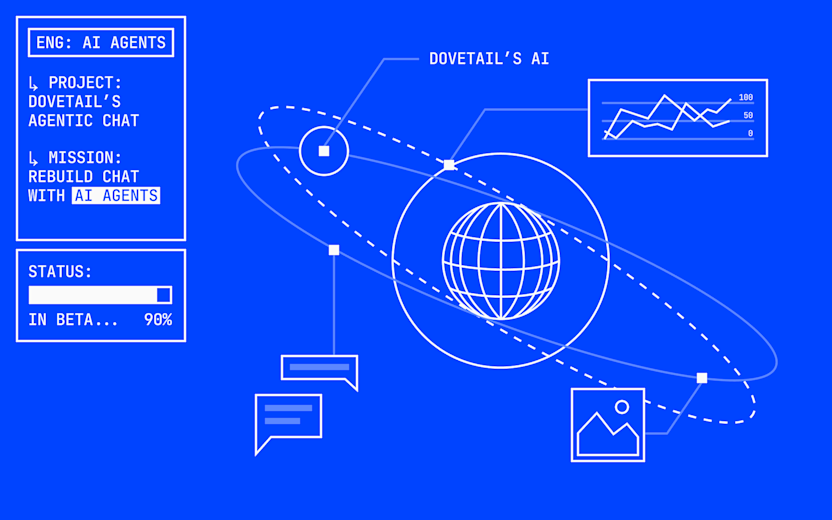
If you're not using AI effectively, you're not just falling behind, you're operating at a fraction of your potential capability.
The AI revolution isn't coming—it's here. And professionals face three stark realities: fall behind by avoiding AI, crash by letting it make unchecked decisions, or soar by mastering AI collaboration.
Whether you're a product manager, developer, marketer, or executive, developing AI literacy isn't optional anymore. It's the difference between thriving and becoming obsolete. Let's explore how you can harness AI's superpowers to deliver high quality work while avoiding its pitfalls.
Peter Wooden is an engineering manager at Dovetail.
Why AI taste matters
If you’re in a product organization, unless you're using state-of-the-art AI tools yourself, how will you know what good looks like? To get the right kind of product ideas, the right intuitions, and the right taste for building in an AI-native world, you have to be using these tools yourself. You can't delegate AI literacy to someone else.
This is especially critical if you're building AI-native products. You need to develop really good taste for what makes AI experiences exceptional versus mediocre. That taste only comes from being a power user yourself—understanding the subtle differences between models, experiencing the frustrations of poor prompting, and discovering the magic moments when AI truly delivers.
The three mental models of AI
After working extensively with AI tools, here’s how I think about working with AI that anyone can benefit from:
AI is your fastest intern
Think of AI as the most capable intern you've ever had—one who never sleeps, knows everything on the internet, and can execute tasks in seconds. But here's the crucial part: you're delegating, not abdicating. You're still the decision-maker, the quality controller, the strategic thinker.
I recently used ChatGPT to generate images for a presentation. What would have taken three hours of searching stock photos and editing took two minutes. But I still chose the concept, refined the prompts, and selected the final outputs.
AI as your professional coach
You now have access to a world-class coach for every skill imaginable—for free, instantly available. I regularly use AI to review my writing, asking it to identify weak arguments, suggest improvements, and challenge my thinking. It's like having a professional coach on call 24/7.
AI as your personal tutor
The learning and development landscape has been completely transformed. Instead of searching for courses or hiring consultants, you can have sophisticated conversations with AI about any topic.
How you can use AI your day-to-day
Here's how AI super users integrate these tools into their daily workflows:
Code development: Use Cursor and Claude code to write code in hours rather than weeks.
Deep research: Use ChatGPT's Deep Research feature to get comprehensive analysis on topics like "the best way to re-architect our application from scratch." It views dozens of sources and synthesizes them into actionable insights—work that would take me hours of manual research.
Learning while multitasking: Use NotebookLM to create personalized podcasts from PDF documents that you can listen to while on transport, cooking, or driving.
Image generation: Use ChatGPT to generate images for a recent presentation. What would have taken me 3 hours of searching stock photos and editing took 2 minutes.
Data analysis: Use Dovetail to analyze survey data—it creates charts, and provides key takeaways automatically. This transforms hours of manual analysis into minutes of AI-assisted insights.
Understanding AI's superpowers and weaknesses
There's a dystopian narrative going around that AI will take everyone's jobs because it can do everything better than humans. I think that's false. The reality is that if anyone's job is at risk, it's because they take the backseat—they take their hands off the steering wheel and stop being in the loop of their work.
If you just let AI autocomplete your entire job without oversight, you're not really working anymore. You'll lose your skills, lose your ability to make good decisions, and become irrelevant. But if you stay in control as the ultimate decision-maker while leveraging AI's capabilities, you become dramatically more powerful.
So if you use it in a naive way, it can massively increase your speed. If you just get it to auto complete a whole blog for you or a whole feature for you, you can get that done in like 10 seconds. But if you don't check it and you don't know how to like make it give you a high quality content, it's going to make quality nosedive.
You are still the key decision maker. Don't let AI make decisions for you—use it to inform better decisions.
To use AI effectively, you need to understand both what it excels at and where it fails spectacularly.
What AI does brilliantly
Q&A and search: It can search the internet and analyze data you provide.
Summarization: Condensing massive amounts of information into actionable insights.
Multimodal analysis: Working with text, images, audio, and video simultaneously.
Iterative refinement: You can have back-and-forth conversations to perfect outputs.
Where AI still struggles
Numbers and Counting: Ask AI how many R's are in "strawberry" and you'll often get the wrong answer. Be extremely cautious when AI outputs numerical estimates or calculations.
Hallucinations: AI can confidently tell you something completely false. I've seen it double down on incorrect information even when corrected multiple times. You need to understand the subject matter well enough to catch these errors.
Bias and Framing: AI will often echo the assumptions in your questions. Ask "Why are eggs so expensive?" and you'll get a detailed explanation. Ask "Why are eggs so cheap?" in a new chat, and you'll get an equally compelling opposite argument.
Information Loss: Each time AI processes information, some nuance gets lost. Sometimes your original notes are actually better than AI's "improved" version.
The prompting secret: It's just communication
Effective prompting isn't about learning complex techniques—it's about clear communication. Focus on two fundamental principles:
Clarity: Write instructions as if you're explaining to a smart colleague. Be specific about what you want and how you want it delivered.
Context: AI can't read your mind. Share the background information that's obvious to you but not to the AI. The more context you provide, the better the output.
Staying current without burning out
The AI landscape changes weekly, but you don't need to follow every development obsessively. Here's my efficient approach:
Hacker News: Check it regularly—it surfaces the most important AI developments.
Lab announcements: Subscribe to updates from top AI companies (OpenAI, Google DeepMind, Anthropic).
LM Arena: Check the model leaderboard to see which AI systems are currently performing best.
Hands-on experimentation: Actually use the tools. Try Perplexity for research, NotebookLM for learning, and different chatbots for various tasks.
Tools to use
Not all AI tools are created equal. Here are the categories that deliver the most value:
Chatbots: Google's Gemini 2.5 Pro currently leads quality rankings, but ChatGPT and Claude are also excellent for different use cases.
Research Tools: Deep Research features in ChatGPT and Gemini can produce comprehensive reports on complex topics in minutes.
Meeting Assistants: These automatically take notes and identify action items from your calls. These save me a massive amount of time.
Coding Assistants: Claude Code and Cursor can write tests, deliver features, and fix bugs.
Building AI-native products requires AI-native teams
Here's something most companies miss: you can't build great AI products without being a sophisticated AI user yourself. If you're not experiencing the cutting edge of what's possible, how can you develop the right product intuition?
At Dovetail, we're moving toward chat-based interfaces because we've seen how transformative natural language interaction can be. Chat is becoming the new "universal interface"—it has no learning curve, infinite flexibility, and can produce rich outputs like charts, highlights, and structured reports.
This insight only came from extensive hands-on experience with AI tools. Product teams that rely on others to tell them about AI capabilities will always be playing catch-up.
Your path to AI mastery starts today
The most successful professionals and companies of the next decade will be those who master AI.
Start experimenting today. Use AI for your next research project, writing task, or analysis challenge. Share what you learn with your team. Build the muscle memory of AI collaboration before it becomes table stakes.
Related Articles


